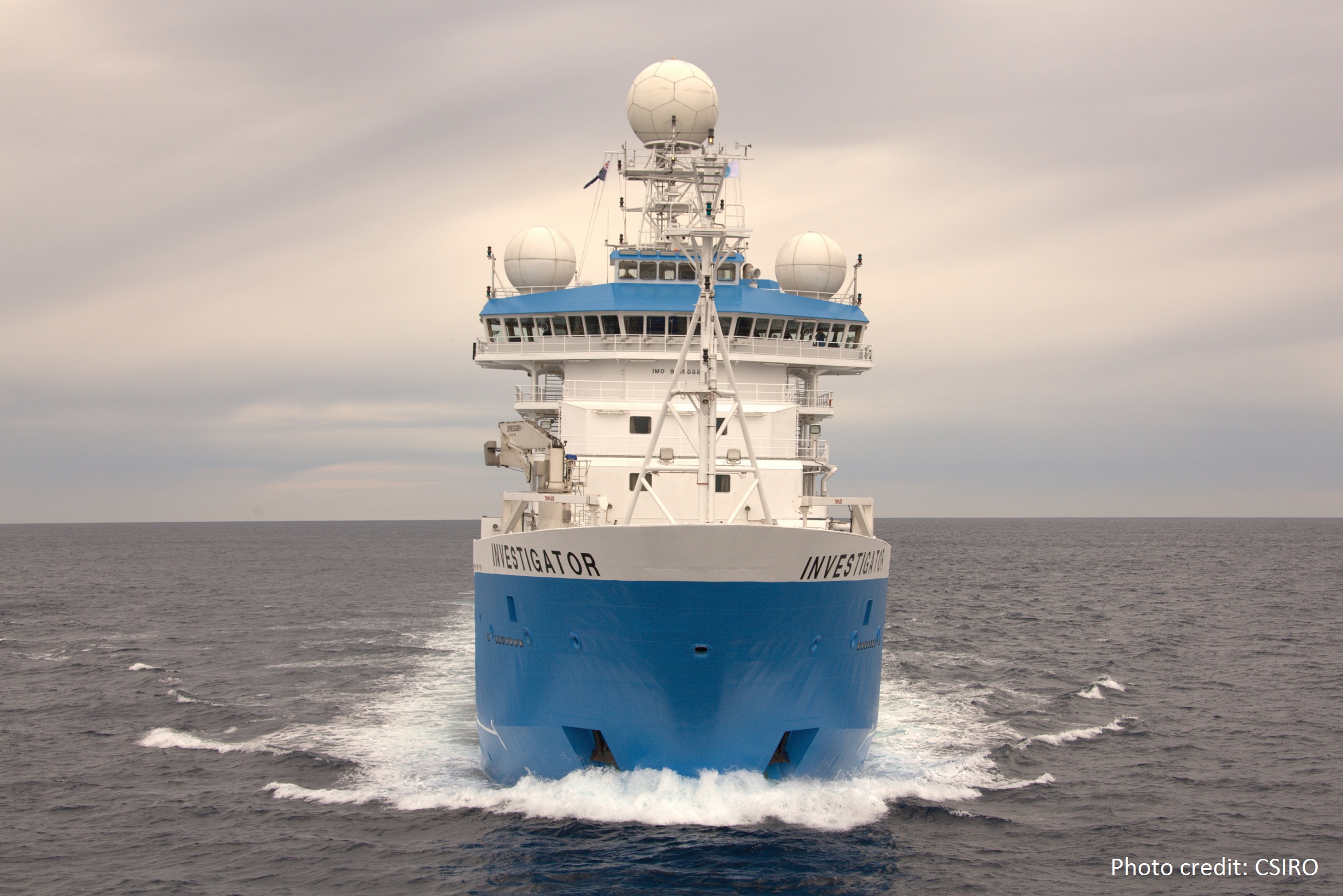13 January, 2016 by Staff Reporter
On Friday the 8th of January, CSIRO’s Marine National Facility research vessel Investigator departed Fremantle on its longest voyage to date, to research the link between active volcanoes on the seafloor and the mobilisation of iron which enriches and supports life in the Southern Ocean. The vessel will be travelling to the remote subantarctic Heard and McDonald Islands in the Southern Ocean, situated 4000km south-west of Perth and 2000km north of Australia’s base at Davis Station in Antarctica.
RV Investigator is a 94 metre purpose-built research vessel, capable of travelling 10,000 nautical miles in a single voyage, and accommodating up to 40 scientists and support staff. The $120 million ship was commissioned in December 2014 and supports atmospheric, oceanographic, biological and geoscience research.
Institue for Marine and Antarctic Studies Professor Mike Coffin, a marine geophysicist and global expert on large igneous provinces including the Kerguelen Plateau, will be Chief Scientist for the 58-day voyage. The voyage is his sixth to the region since 1985.
The aim of the expedition is to map the seafloor on the Kerguelen Plateau systematically for the first time, so that active submarine volcanoes and the source of iron-enriched waters can be identified. Phytoplankton, microscopic organisms that inhabit the upper sunlit layer of almost all oceans and bodies of fresh water, contribute at least half of the oxygen in Earth’s atmosphere. “We suspect that hydrothermally mobilised iron is critical to the growth of phytoplankton blooms, the foundation of life in the Southern Ocean ecosystem,” Professor Coffin said. “As well as supporting ocean life and supplying our atmosphere with oxygen, phytoplankton blooms impact carbon, nitrogen, silicon and sulphur, which influence the Earth’s entire climate system.”
Associate Professor Andrew Bowie, Co-Chief Scientist and a leading expert on ocean iron biogeochemistry, said the growth of phytoplankton is limited by the trace element iron in the Southern Ocean. “Quite simply, the Southern Ocean is anaemic. If we find that iron supplied through hydrothermal activity exerts control on the dynamics of phytoplankton blooms and fertilising the Southern Ocean, as we postulate, it will be the first proven link globally between solid Earth processes associated with hotspot volcanism and biological processes in the ocean.”

The RV Investigator’s capabilities will allow scientists to capture 3D images of the seafloor; tow a deep sea camera; deploy sensors; collect rock, sediment, and sea water samples to allow tracking of hydrothermal fluids from the seafloor to the ocean’s surface; and identify phytoplankton blooms.
Two artists supported by the Australia Council for the Arts, a photographer and a cinematographer, will also join the voyage. The voyage will also host several scientists and deploy equipment contributing to other significant research projects, including international programs GEOTRACES, SOCCOM, and Kerguelen Axis.
The Project is supported through funding from the Australian Government’s Australian Research Council and Australian Antarctic Science Grant Program.